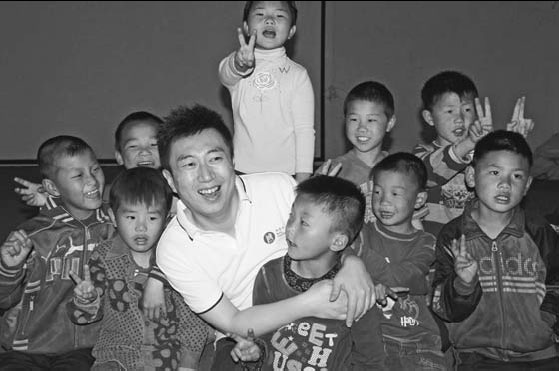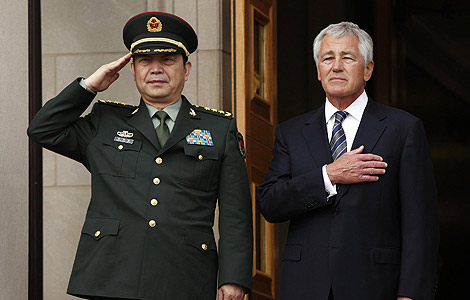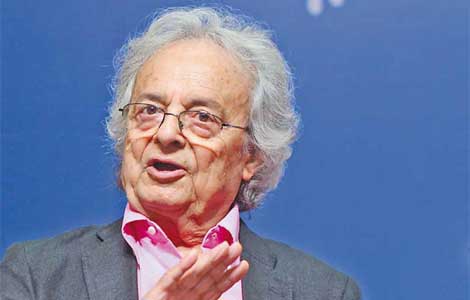Celebrity TV presenter recognized for charity work
Updated: 2013-08-20 07:50
By Liu Zhihua (China Daily)
|
||||||||
|
At Sun Village in Shunyi district in Beijing, Chen Weihong visits children whose parents are in prison. Provided to China Daily |
Chen Weihong, the 45-year-old celebrity TV presenter in China, has lots of honors and awards to his name, but recently he received a very special one.
He was presented the Role Model Award of China Charity Awards, at a ceremony held by the Ministry of Civil Affairs annually. It is the highest-ranked national charity award event in China.
The award committee said they chose Chen because of his devotion to charity programs, his continuous efforts in helping children in rural areas, and his creativity in developing new methods to help those in need.
"I am honored to receive the award. It shows recognition from the charity circle for my efforts, a form of encouragement for me," Chen says.
Chen was born in 1968 in Xiamen, a tourism destination in Fujian province, and became well-known through CCTV, China's biggest television network. He hosts a financial, political and social hot spot talk show.
In early 2011, Chen established Hong Foundation, a public charity body affiliated with China Social Welfare Foundation, raising funds mostly through his personal network.
As a celebrity TV presenter, Chen has many opportunities to host or report on charity events and programs. He says he is often stunned by how vulnerable people can be, and wants to help and make a little difference to their lives.
Left-behind children in rural areas, whose parents have migrated to cities for work, tug on Chen's heartstrings the most.
Unlike other charity organizations that simply fundraise and donate money to vulnerable groups, Hong Foundation spends lots of resources in creating better growth environment for left-behind children, such as helping severely-ill children get better treatment and organizing volunteers to teach children in remote villages.
One of Hong Foundation's most creative programs is providing left-behind children with "love bags", which contain items such as books, torches, and most importantly, envelopes and stamps so that children can write letters to their parents.
Additionally, when children send letters to parents with a self-addressed stamped envelope enclosed, parents can reply to them without hassle.
"During my visits to remote areas, I realize that poverty is a big problem for these left-behind children, but the absence of parental care in their life is an even bigger problem," Chen says.
Children's spiritual growth depends on care and love, but caregivers of left-behind children, usually their gray-haired grandparents or relatives, often fail to take good care of the emotions of these children, either because they do not have the awareness, or the intention, Chen explains.
Chinese are shy and conservative in expressing love directly. Letters are a traditional but effective way for children and parents to keep in touch and express love, which they seldom do during their few phone calls, Chen adds.
As part of the "Love Bags Program", Hong Foundation also assists the children to visit their parents.
Last month, together with Xilinmen, a Chinese furniture company, Hong Foundation donated 4,000 love bags to left-behind children in Xunhua, Qinghai province, and nearby counties, as well as bringing 40 children to Beijing, to visit their parents and places of interests.
Most of the children have not seen their parents for years because the long-distance traveling between Beijing and Qinghai is too costly for the migrant workers' families.
"My brother and I haven't seen our parents for three years," says Mian Shenghua, a 10-year-old girl from Xunhua, who was reunited with her parents in Beijing on July 14, together with her younger brother.
"We live with our grandparents, and are very obedient because if we behave well, our parents will come back to us soon.
"I'm so happy to visit Beijing and see my parents. I miss them so much."
But for Chen, it is not enough.
"There are too many people who suffer and need help. I hope Hong Foundation will be able to offer more help and will inspire others to help.
"Chinese culture educates us to be kindhearted to others, and I think deep in our hearts, every Chinese wants to offer a helping hand to those who are suffering," Chen adds.
liuzhihua@chinadaily.com.cn
(China Daily USA08/20/2013 page10)
Most Viewed
Editor's Picks

|

|

|

|

|

|
Today's Top News
Western program new engine for growth
China, Kenya agree to bolster ties
Online shopping clicking up
Typhoon wreaks havoc in the south
ROK-US drill starts as tensions ease with DPRK
Manners missing in overseas travel
Snowden reporter threaten UK
Egypt's Mubarak may be freed
US Weekly

|

|
















